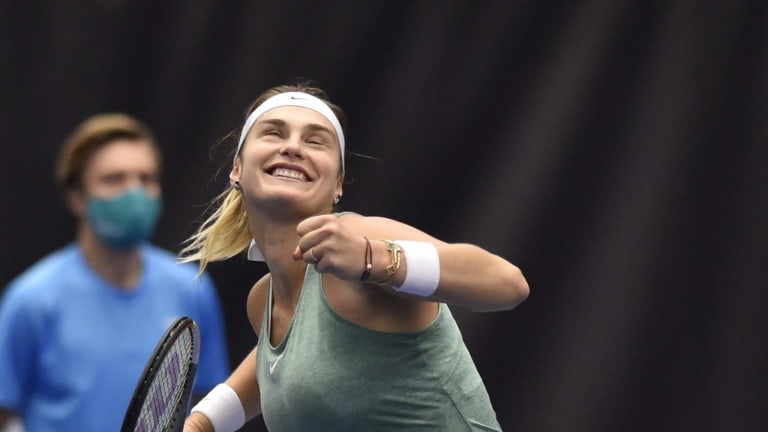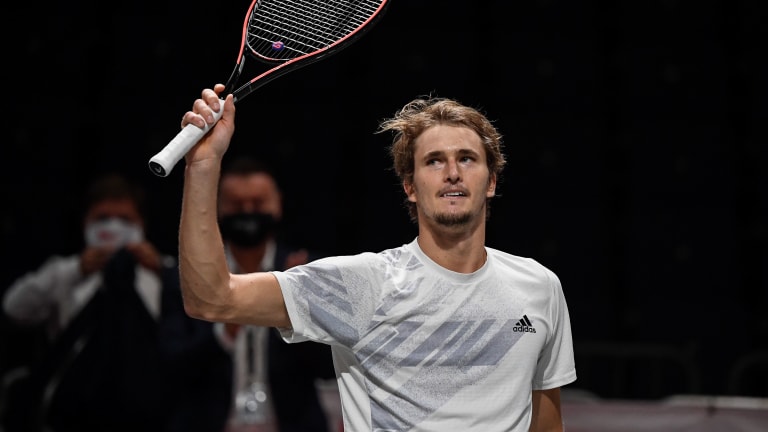Zverev double dips in Cologne, Sabalenka sweeps Ostrava titles
By Oct 25, 2020Ranking Reflection
Carlos Alcaraz and Jannik Sinner achieved rare levels of ranking dominance in 2025
By Nov 28, 2025Social
Jannik Sinner and Alexander Zverev share flight to the Maldives
By Nov 24, 2025Davis Cup
Davis Cup dramatics! After Zverev wins, Krawietz/Puetz save three match points to lift Germany past Argentina
By Nov 21, 2025Davis Cup
Can a Jannik Sinner-less Italy three-peat the Davis Cup at home?
By Nov 17, 2025United Cup
Swiatek, Gauff, Osaka, Auger-Aliassime, Zverev among 2026 United Cup entrants
By Nov 17, 2025Quote of the Day
Alexander Zverev dubs 2025 "incredibly unsatisfying" after ATP Finals exit
By Nov 15, 2025ATP Finals
Felix Auger-Aliassime: "Beautiful night" in Turin came from riding wave of self-belief against Alexander Zverev
By Nov 14, 2025ATP Finals
ATP Finals: Sinner vs. Shelton & Zverev vs. Auger-Aliassime | Previews, Picks, Where to Watch
By Nov 13, 2025ATP Finals
Alexander Zverev opens quest for third ATP Finals title by edging Ben Shelton
By Nov 09, 2025Zverev double dips in Cologne, Sabalenka sweeps Ostrava titles
Aryna Sabalenka and Alexander Zverev played the way many of us have hoped to see them play on Sunday—Sabalenka with patience, Zverev with aggression—and both were rewarded for it.
Published Oct 25, 2020
Advertising

Zverev double dips in Cologne, Sabalenka sweeps Ostrava titles
Advertising
Advertising

Zverev double dips in Cologne, Sabalenka sweeps Ostrava titles
© AFP via Getty Images